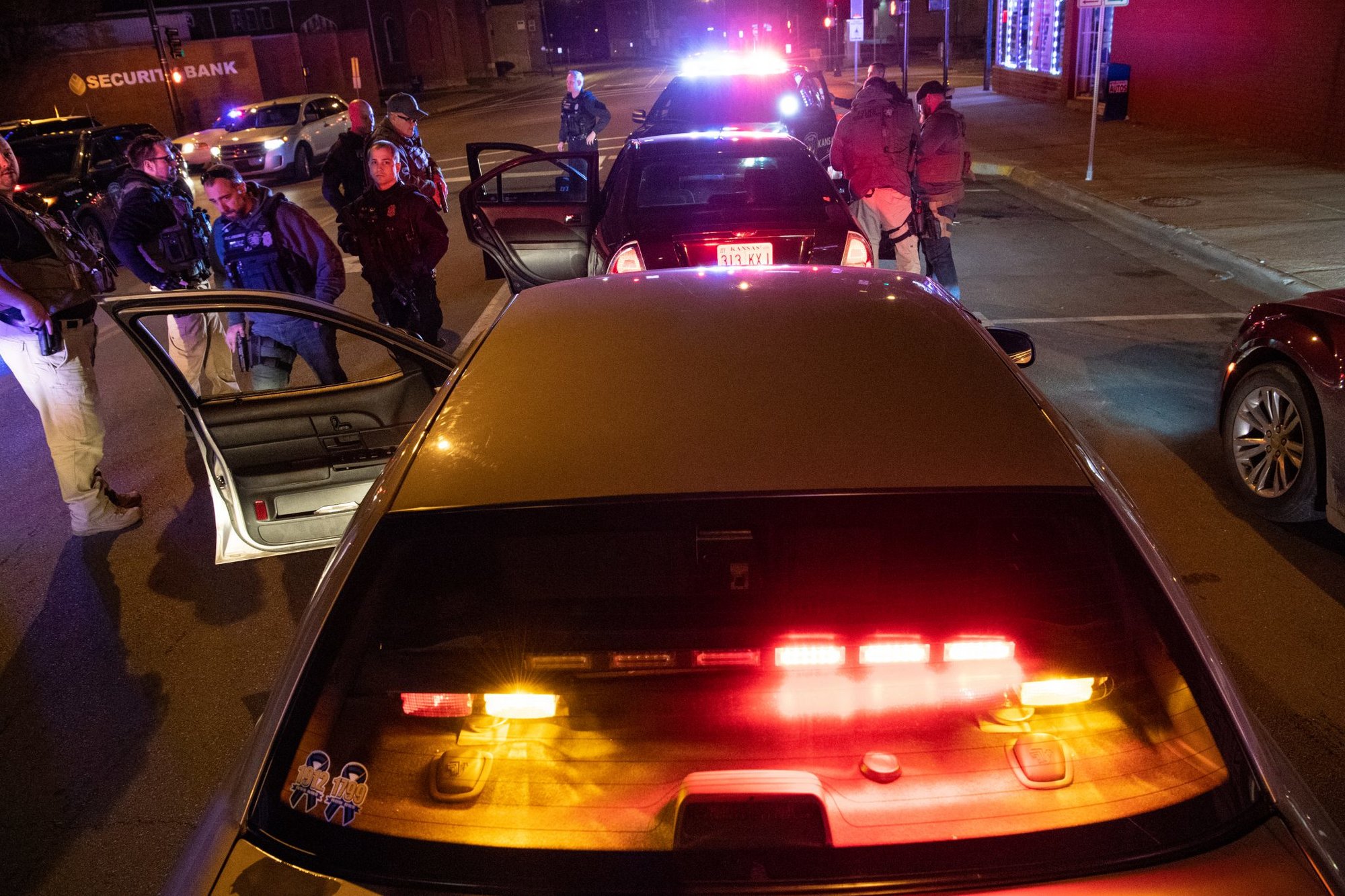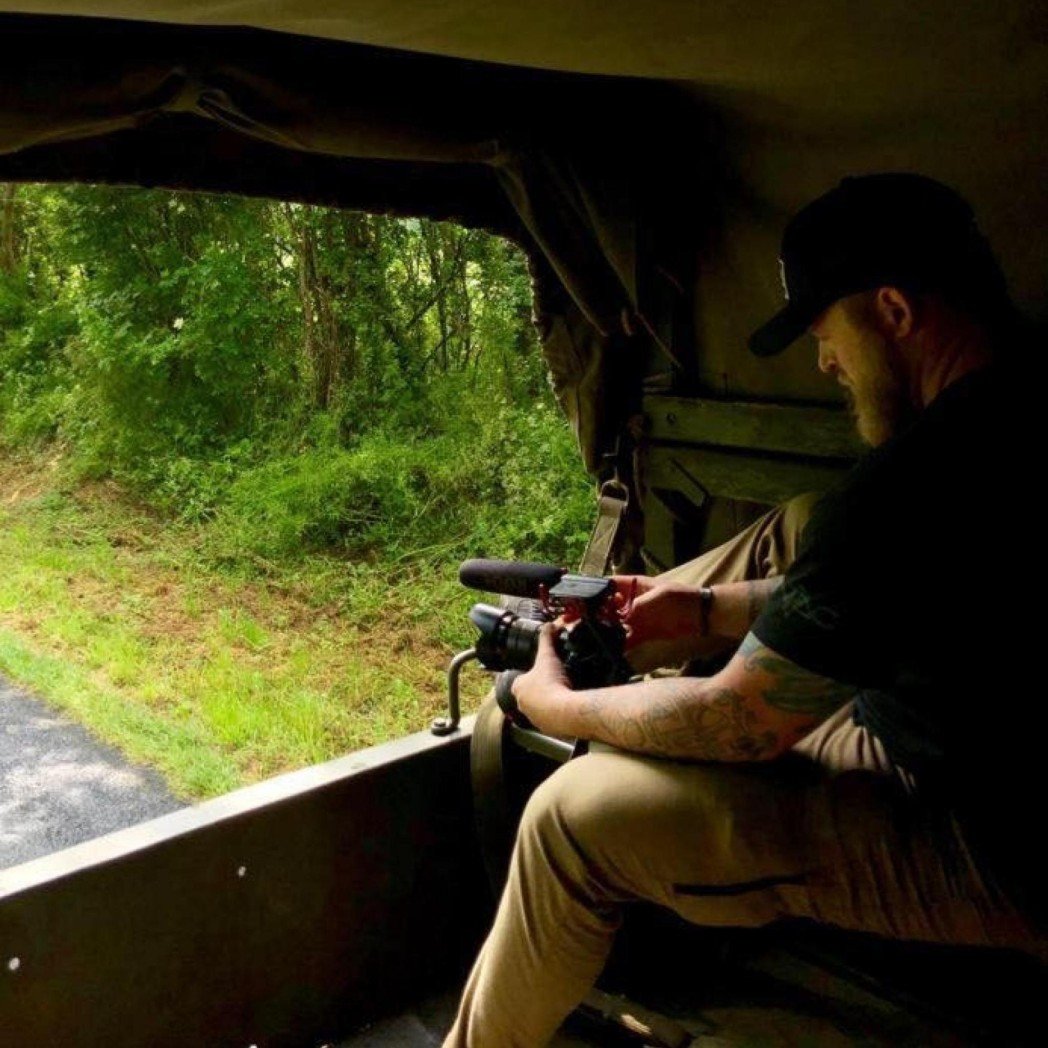Trump’s Executive Order on Protecting Law Enforcement Officers, Judges, Prosecutors, and Their Families: Here’s What You Need To Know

Operation Triple Beam was a U.S. Marshals-led collaborative campaign with the Kansas City, Kansas, Police Department that brought together federal, local and state law enforcement in the Kansas City area from March 5 – April 27, 2018. Focused on the Central Avenue corridor of Kansas City, an area impacted by significant gang violence, the operation targeted the most violent gang members and organizations. The operation resulted in 195 arrests, 94 of which were gang members or gang affiliated. In addition, 60 firearms, over $115,000 in crime-related currency, and more than 41 pounds of narcotics were seized. The Operation Triple Beam model has proven to be effective throughout the nation as a method of reducing street level gang violence through the targeting of gang members and those actively involved in criminal activity. Through collaboration and strategic investigations, investigators remove dangerous criminal elements from the street while seizing the tools used to continue these illegal activities Ð firearms, narcotics and cash. Photo by: Shane T. McCoy / US Marshals
President Donald Trump signed into law an executive order Monday, just two days before departing the White House, that will enhance protection for active and retired “qualified” — as defined by the Law Enforcement Officers Safety Act of 2004 — federal law enforcement officers, judges, prosecutors, and their families.
“Under the Constitution and federal law, our Government vests in judges, prosecutors, and law enforcement officers the power to make decisions of enormous consequence. Because of the importance of their work, these public servants face unique risks to their safety and the safety of their families,” reads the executive order. “Some who face or have received an adverse judicial decision have sought to intimidate or punish judges and prosecutors with threats of harm. Moreover, judges, prosecutors, and law enforcement officers are symbols within our communities of law and order and may be targeted for that reason alone. And at times, family members of public servants have become victims.”
The document references the attempted murder of US District Court Judge Esther Salas as part of the reasoning behind the executive order. Salas’ 20-year-old son was shot and killed, and her husband was shot and critically wounded, later recovering.
“This tragedy, every mother’s worst nightmare, happened for a reason wholly unrelated to either my husband or my son, but because of my job: I am a United States District Court judge,” Salas said in an opinion essay in The New York Times. “A lawyer who had appeared before me was angered by the pace of a lawsuit he had filed in my court. He came to my home seeking revenge. My attacker sought to hurt me but his ire, and his focus, were not unique. Federal judges are at risk from other would-be attackers.”
The executive order requires the removal of any barriers keeping active or retired federal law enforcement officers from carrying a concealed firearm. All departments and agencies employing qualified LEOs now must submit a report to the president, in which they must identify the barriers facing LEOs from carrying a concealed firearm. They must also explain why the department or agency did not remove these barriers before the executive order was put in place and indicate steps toward implementing the policy in the future.
Federal prosecutors will undergo special deputation as deputy United States marshals when faced with threats to themselves or their family members to allow them to carry a concealed firearm, regardless of any current state or federal laws that would prohibit it. The executive order also details that when federal judges, prosecutors, and/or their families are threatened, they can carry a concealed firearm for protection regardless of state or federal restrictions.
The prosecutors’ special deputation only grants the ability to carry a firearm and does not grant them law enforcement powers such as the power to arrest. If a prosecutor is deputized, they are required to undergo firearm safety training and instruction on how to use a firearm, per the executive order.
The executive order also requires the US Marshals Service to prioritize the protection of federal judges and federal prosecutors. It requires the US attorney general to prioritize investigations into threats to LEOs, prosecutors, and judges employed at the federal level.
The attorney general and the secretary of homeland security are ordered to cooperate on a review of the executive branch to “assess the feasibility” of removing or minimizing personally identifiable information in the public domain pertaining to active or retired LEOs, prosecutors, and judges. Also, the people identified as “at risk” will be informed of the review’s findings when it’s concluded.
Trump’s executive order also requires that “heads of all agencies” review what personal information they are collecting from prosecutors, judges, and LEOs while allowing them to provide a post office box address instead of a home address for official purposes.
The Department of Homeland Security, the US Marshals Service, and the FBI will be granted additional authority and appropriations such as additional personnel and the authority to respond to civil unrest and threats to federal courthouses, such as the incidents in Portland, Oregon, over the summer.
Penalties for threats and committed violence against federal judges, prosecutors, and LEOs are to be increased, and any threat or violence against their families will be treated as if committed against the federal employee.

Joshua Skovlund is a former staff writer for Coffee or Die. He covered the 75th anniversary of D-Day in France, multinational military exercises in Germany, and civil unrest during the 2020 riots in Minneapolis. Born and raised in small-town South Dakota, he grew up playing football and soccer before serving as a forward observer in the US Army. After leaving the service, he worked as a personal trainer while earning his paramedic license. After five years as in paramedicine, he transitioned to a career in multimedia journalism. Joshua is married with two children.
BRCC and Bad Moon Print Press team up for an exclusive, limited-edition T-shirt design!
BRCC partners with Team Room Design for an exclusive T-shirt release!
Thirty Seconds Out has partnered with BRCC for an exclusive shirt design invoking the God of Winter.
Lucas O'Hara of Grizzly Forge has teamed up with BRCC for a badass, exclusive Shirt Club T-shirt design featuring his most popular knife and tiomahawk.
Coffee or Die sits down with one of the graphic designers behind Black Rifle Coffee's signature look and vibe.
Biden will award the Medal of Honor to a Vietnam War Army helicopter pilot who risked his life to save a reconnaissance team from almost certain death.
Ever wonder how much Jack Mandaville would f*ck sh*t up if he went back in time? The American Revolution didn't even see him coming.
A nearly 200-year-old West Point time capsule that at first appeared to yield little more than dust contains hidden treasure, the US Military Academy said.












